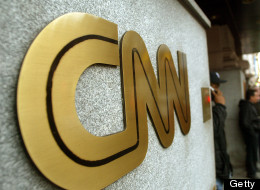
PRIX DU CARBURANT – Six centimes de moins par litre... C'est la baisse que pourront constater les automobilistes en se rendant dans leur station-service, à partir du 29 août, pendant 3 mois, avant de "mettre en place un mécanisme plus pérenne", s'est empressé d'ajouter le ministère des Finances. Ils ont raison de s'en préoccuper, car ce coup de pouce reste très ponctuel.
Trois centimes seront à la charge de l'État, au moyen d'une réduction des taxes, tandis que les pétroliers s’acquitteront des trois centimes restant. Mais cela reste bien une mesure d'urgence, car si le cours du carburant augmentait de 6 centimes, l'effort serait vain.
Le gazole a atteint la semaine dernière un record historique, à 1,4592 euro le litre en moyenne, et le sans-plomb est proche de ses plafonds. Le sans-plomb 95 a même étéenregistré à 2,05 euros par litre dans une station-service parisienne, la semaine passée...
"Nous avons peur que cette légère baisse suscite beaucoup de désillusions", avait lancé la veille Michel Fréchet, président de la Confédération générale du logement (CGL), au sortir d'une réunion à Bercy, tandis que l'association Familles rurales soulignait qu'en-dessous de 10 centimes par litre, il n'y aurait "aucun impact" sur le pouvoir d'achat des ménages.
Pourquoi l'État ne dispose-t-il pas de leviers efficaces pour faire chuter de façon satisfaisante le cours du carburant ? Manque de moyens financiers ? De courage politique ? Main-mise des groupes pétroliers ? Le HuffPost a fait le tour de la question, en présentant chacune des principales solutions évoquées.
Solution n°1 - La baisse de la TICPE. Un simple déplacement du problème
C'est l'option choisie par le gouvernement. Avec la taxe intérieure de consommation sur les produits énergétiques (ex-TIPP), l'État récupérait auparavant 0,6069 euros sur chaque litre de sans-plomb et 0,4284 euros sur le litre de gazole, ramenant des recettes substantielles. La TICPE a rapporté 23,9 milliards d'euros en 2010, dont 14,2 milliards pour l'État, le reste étant réparti entre les départements et les régions.
Pour chaque centime en moins sur la TICPE, l'État se prive ainsi de 1,4 million d'euros de rentrées fiscales par jour. En prenant en compte les annonces de Pierre Moscovici, c'est 300 millions d'euros qui manqueront dans les caisses. Pour équilibrer son budget, le gouvernement devra donc trouver d'autres sources de revenus.
L'association 40 millions d'automobilistes s'est déjà inquiétée lundi "de la compensation qui pourrait être envisagée par le gouvernement pour amortir cette perte".
Solution n°2 - Le blocage des prix. Pourquoi ça ne sert à rien
Le blocage des prix à la pompe aurait eu pour conséquence d'impacter les professionnels du secteur, comme les chaînes de supermarchés. En fonction de la hausse du baril, certaines stations auraient été contraintes de vendre à perte, ce qui aurait mis en péril plusieurs maillons de la filière française du raffinage et de la distribution et, de surcroît, est tout simplement illégal. Le secteur, qui se dit mal en point, a déjà subi une surtaxe d'un demi-milliard d'euros par le nouveau gouvernement cet été.
Bien que très satisfaisante pour les automobilistes, cette mesure ne peut être mise en place que sur une période maximum de six mois, comme le prévoit le Code du commerce, se basant sur le principe de libre concurrence. La conséquence, c'est le risque d'ajustement, qui peut être extrêmement violent au sortir de cette période.
Bien que très satisfaisante pour les automobilistes, cette mesure ne peut être mise en place que sur une période maximum de six mois, comme le prévoit le Code du commerce, se basant sur le principe de libre concurrence. La conséquence, c'est le risque d'ajustement, qui peut être extrêmement violent au sortir de cette période.
Leclerc et Super U ont d'ailleurs annoncé dans les médias » Leclerc: un coup de pouce pour un coup de pub" target="_hplink">lundi 27 août qu'ils comptaient vendre leur essence à prix coûtant.
Solution n°3 - Surtaxer les pétroliers. La DGCCRF est contre
D'après la direction de la concurrence (DGCCRF), les pétroliers ne sont pas les grands "méchants capitalistes" sur lesquels il faut cogner dur. Selon un rapport rédigé en avril 2011 que La Tribune s'est procurée, les distributeurs sont blanchis sur la plupart des soupçons qu'on leur portait.
En effet, la marge brute des distributeurs a explosé en raison "de l'augmentation des charges d'exploitation et des obligations réglementaires". Parmi elles: de nouvelles normes environnementales des stations, certificats d'économie d'énergie, taxes sur les activités polluantes, interdiction de la vente d'alcool dans les stations, hausse des redevances sur les concessions d'autoroutes... Au final, la direction de la concurrence valide une marge nette de 1 centime d'euros par litre, que revendiquent les pétroliers.
Elle balaie aussi les soupçons de non-répercution à la pompe des baisses des produits raffinés. En effet, lors d'une hausse du prix du pétrole, les distributeurs ne la répercutent pas entièrement, tout comme ils ne répercutent pas toute la baisse lorsque les prix baissent. "Pris sur une période assez longue, le différentiel hausse-baisse est bien répercuté sur les prix mais avec une moindre amplitud", poursuit la DGCCRF.
Concernant les groupes comme Total, il peut être tentant de hurler avec les loups, mais la vérité se trouve tronquée. En effet, sur 12,3 milliards d'euros de profits en 2011, le groupe tire 10 milliards de l’amont, c'est-à-dire de l’exploration et de la production. Sur son activité d'aval (raffinage, distribution et trading), Total n'enregistre "que" 2 milliards.
Au final, la France représente moins de 15% de ces profits, qui sont principalement réalisés sur les bitumes, les lubrifiants et le fuel pour les entreprises, note Le Monde.Pour les seules stations, Total ne peut qu'imiter les autres, en tentant de se rattraper sur les produits annexes: alimentation, lubrifiants, gadgets etc.
Solution n°4 - Piocher dans les réserves stratégiques. En cas de "grave crise"
Cette réserve représente trois mois d'importations nettes, mais la France ne peut l'utiliser qu'à moins d'une grave crise internationale. La décision doit également être prise en coopération avec l'Union européenne et l'Agence internationale de l'énergie (AIE), dont Paris est membre.
Au final, seule une crise pétrolière ou le boycott d'un pays producteur peut en théorie aboutir à une telle décision, à laquelle Barack Obama n'était pas opposé il y a quelques mois.
Les autres solutions...
Ressusciter la TIPP flottante: Cela consiste à adapter le niveau de taxe des carburants aux fluctuations du prix du brut, pour pouvoir obtenir un prix relativement stable dans le temps à la pompe. Instituée à entre 2000 et 2002 par le gouvernement Jospin, elle avait été abandonnée suite à la hausse continue des prix qui creusait les comptes de l'État.
Ressusciter la vignette automobile: La vignette, créée en 1956 et supprimée en 2000 par Laurent Fabius, a de nouveau été envisagée. En prenant en compte la puissance fiscale du véhicule, elle incite à acheter des voitures moins puissantes donc moins gourmandes en carburant. Une nouvelle version de la vignette pourrait également prendre en compte la zone géographique, et donc l’offre de transports disponible. Mais c'est encore l'automobiliste qui passe à la caisse.
Chèque carburant: Sur le modèle des tickets restaurant, ce dispositif permettrait à l'employeur d'assumer une partie du coût du déplacement domicile-travail du salarié. Déjà répandus à l’échelle locale, ces coupons ont aussi un prix que les entreprises ne peuvent pas toutes supporter. Qui alors pour payer ?
Favoriser l'achat de véhicules hybrides ou électriques: C'est la solution à long terme choisi par la France pour se mettre à l'abri de la raréfaction et la flambée des prix. Le gouvernement prévoit un super bonus de 7000 euros pour les véhicules électriques et de 4000 euros pour les véhicules hybrides.










